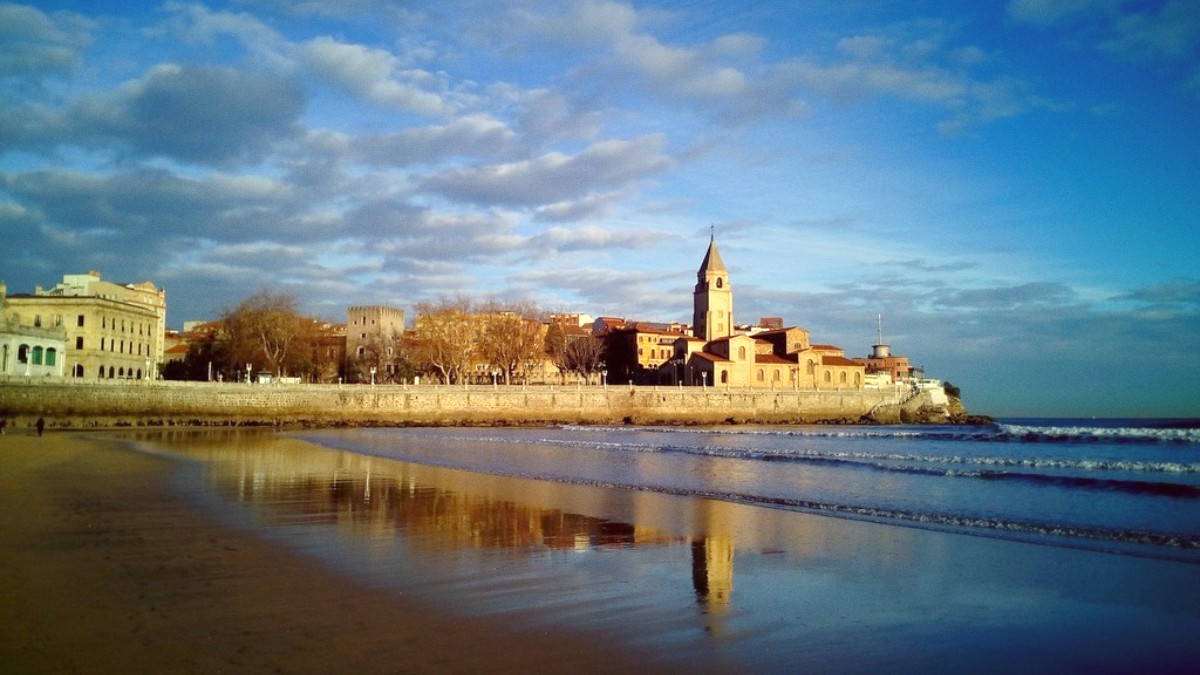
Asturias, Spain
Gijón relies on an extensive urban Bus network, operated by Empresa Municipal de Transportes Urbanos de Gijón (EMTUSA). Buses are modern and cover most areas of the city efficiently. Gijón does not have a metro or tram system; the bus network forms the backbone of local public transport.
Hubs: El Humedal (Plaza del Humedal) and Plaza del Parchís are central points for many bus lines, serving as convenient transfer locations. The main bus station (Estación de Autobuses) and train station (Sanz Crespo) also serve as major transit points, connecting urban buses with long-distance services.
Detailed route maps are at major bus stops, the EMTUSA office, and on the EMTUSA website. Google Maps integrates EMTUSA routes, providing real-time bus locations.
Most lines operate from ~6:00 AM to 11:00 PM/midnight. Frequency varies by line and time of day, 10-20 minutes during peak hours. Night buses (Búhos) run Friday/Saturday nights on select routes.
Most modern buses have ramps for wheelchair access and designated spaces. Older city parts (Cimavilla) have cobblestones and hills, which can pose challenges for mobility.
Extensive network across Gijón.
Affordable, Bonobus card for savings.
Early morning to late evening, night services on weekends.
Cash on bus, card at kiosks for Bonobus.
Taxis and ride-sharing apps offer convenient alternatives to public transport, especially for direct routes, late-night travel, or when carrying luggage.
Typically €4-€5.
Most rides €6-€12.
Around €45-€55.
Gijón's transportation largely relies on standard methods, with rental options for greater independence.
Drive on the right. Seatbelts mandatory. Children under 135 cm need car seats. No mobile phone use while driving. Strict drunk driving limits.
Prioritize safety on the road.
Roads in Gijón and Asturias are generally well-maintained. Motorways link major cities for efficient travel. Coastal roads are scenic but can be winding.
Enjoy the scenic drives.
Blue Zones for paid street parking. Underground car parks (e.g., Arbolón, Poniente) are convenient but can be expensive. Free parking is limited centrally.
Plan your parking in advance.
Gijón encourages walking and cycling, offering pleasant routes and a pedestrian-friendly environment.
City's public bike-sharing. Mainly for residents, but ask Tourist Office about short-term options.
Numerous shops offer mountain, city, and e-bikes. Prices ~€10-€20/day.
Rental shops are popular near the coastline and parks, offering convenient access.
Gijón's transportation largely relies on standard methods, but some specialized options might be available seasonally.
EMTUSA buses are generally accessible with ramps and designated spaces for wheelchairs.
Many public buildings and newer attractions have ramp access or elevators, enhancing accessibility.
Older parts of the city like Cimavilla, with cobblestones and inclines, can present challenges. Pre-book specialized accessible taxis if needed.
Gijón's transport system is straightforward and efficient. Whether by bus, taxi, car, or on foot, navigating the city and its surroundings is a smooth experience.
Plan ahead using available resources to make your travel within Gijón as enjoyable as your stay.